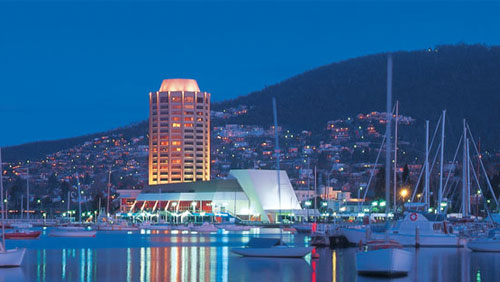 After 42 years of Federal Group’s gambling monopoly in Tasmania, opponents now call for the license renewal to be put to tender.
After 42 years of Federal Group’s gambling monopoly in Tasmania, opponents now call for the license renewal to be put to tender.
Since 1968, when Tasmanians voted in favor of a development that would see the state become home to Australia’s first legal casino, the Federal Group has held the exclusive rights to the state’s gambling business.
Federal’s Wrest Point Hotel was relaunched as Wrest Point Hotel and Casino in 1973, and after nine years, the company opened another casino in Launceston.
Federal Group has maintained its monopoly on Tasmania’s gambling venues and poker machines, renewing its agreement in 1993 and again in 2003. Neither deal was subjected to an open tender process and were negotiated behind closed doors between the Tasmanian government and Federal Group officials.
In exchange for its exclusive agreement, Federal Group agreed to build Saffire Resort at Coles Bay, maintain table gambling at the casino, and limit video poker machines (pokies) to 3,680 throughout the state.
Last year, David Walsh, owner of Museum of Old and New Art (MONA), revealed plans for a high roller, tourist-only casino in a bid to increase revenue but the Federal Group’s deal with the state stood in the way and would require amending.
The government has had a discussion with Federal Group to extend the agreement, which is up for renewal in 2018 and would expire in 2023, to compensate for potentially breaking its monopoly on casinos.
But Walsh withdrew his application for a casino last month, saying he did not want to gain a license if it resulted in Federal also gaining an extension on its monopoly for poker machines.
“I find poker machines anti-social, unsightly and insidious,” Walsh wrote in a blog. “But, unfortunately, they are now a significant source of revenue to the government and our legislators are, therefore, conflicted. That means it’s up to those of us who think pokies are a problem to give a clear indication of the direction we want.
Walsh also revealed the incentives he offered the Federal Group not to pursue an extension, including a cash payment of $500,000 upon approval of his license, not asking for a poker machine license or a general license to allow locals in 2023 and said he would also support Federal if it applied for a reduction in the license fees paid to the government. In addition, he also revealed plans for other developments at the MONA site worth more than $200 million, which would include 160-room hotel, a function centre, a 1000-seat theatre, a gallery expansion and new restaurant/function room/bar facility.
Walsh still hopes to build the casino if it could gain a license in the future.
“I intend to ascertain if the political will exists to attempt to overturn the existing monopoly and, in the event that abrogating the monopoly legislation proves not to be feasible, to seek a license in 2018 for 2023,” Walsh wrote.
Independent MP for Denison Andrew Wilkie said he wanted the license renewal to be subject to an open tender process to make sure the license holder would pay a fair market value for that license, adding: “Otherwise it’s just another good gift for a good mate at the expense of the Tasmanian taxpayer.”
Former head of the Australian Competition and Consumer Commission (ACCC), Allan Fels, has the same thoughts, saying that the arrangement was uncompetitive and disadvantaged to taxpayers.
“If the Government is putting a monopoly out for sale or lease, then it’s important they get the best possible deal for the public, and they will get that if there’s competition,” added Fels.